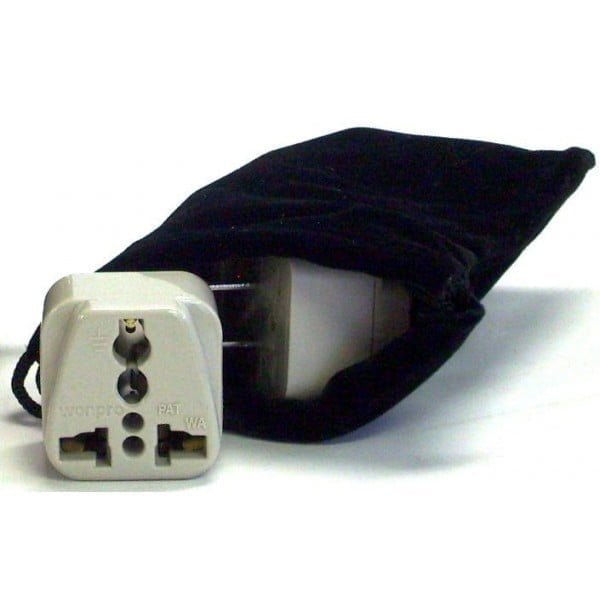Bhutan Plug Adapters Kit with Travel Carrying Pouch Includes:
One Wonpro Grounded plug adapter for Bhutan
One Wonpro Non-Grounded plug adapter for Bhutan
One Basic Grounded plug adapter for Bhutan (other outlet configuration if needed)
One Basic Non-Grounded plug adapter for Bhutan (other outlet configuration if needed)
One Black Travel Velvet Carrying Pouch with Drawstring closure Large 4 wide x 5 inches






